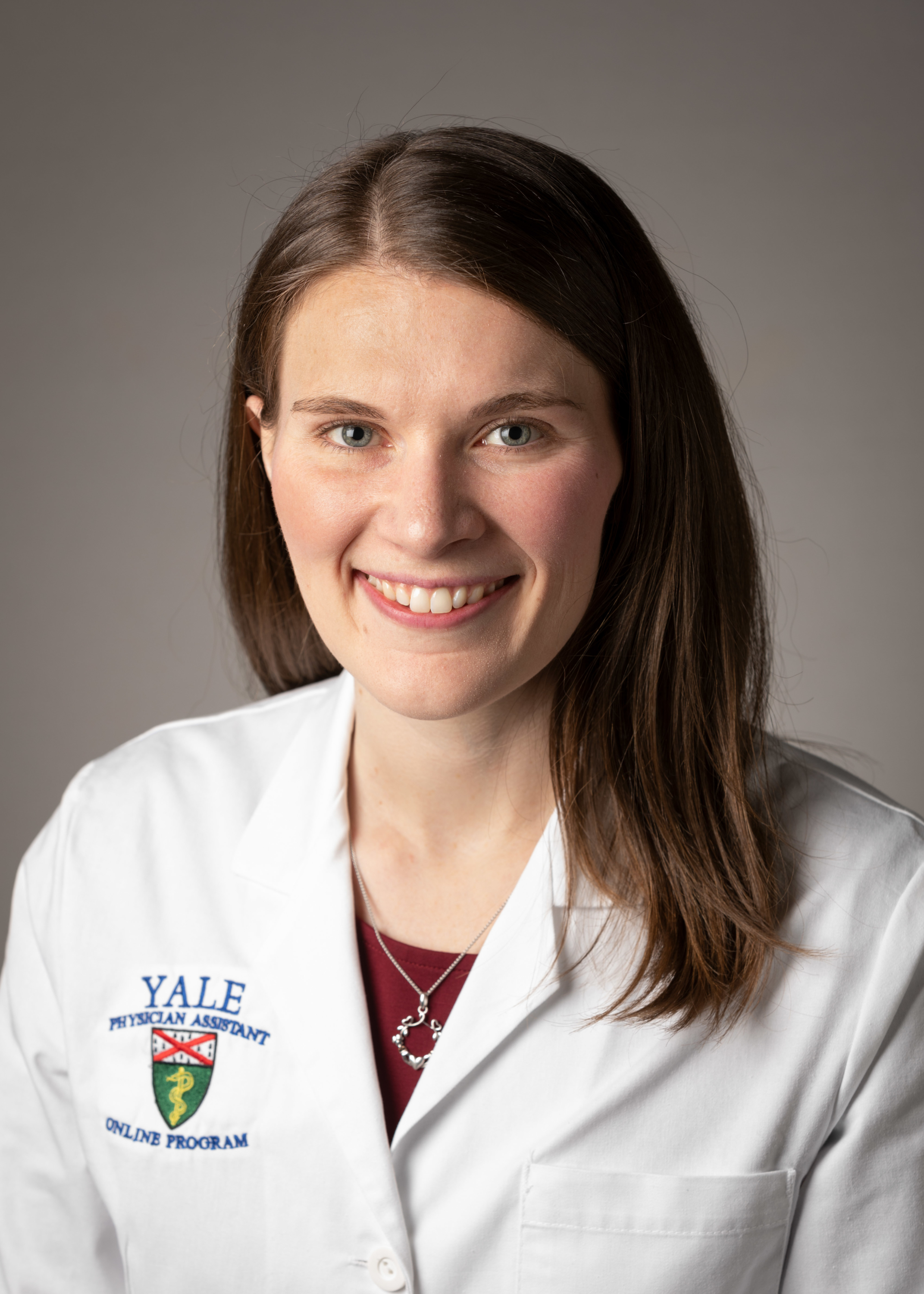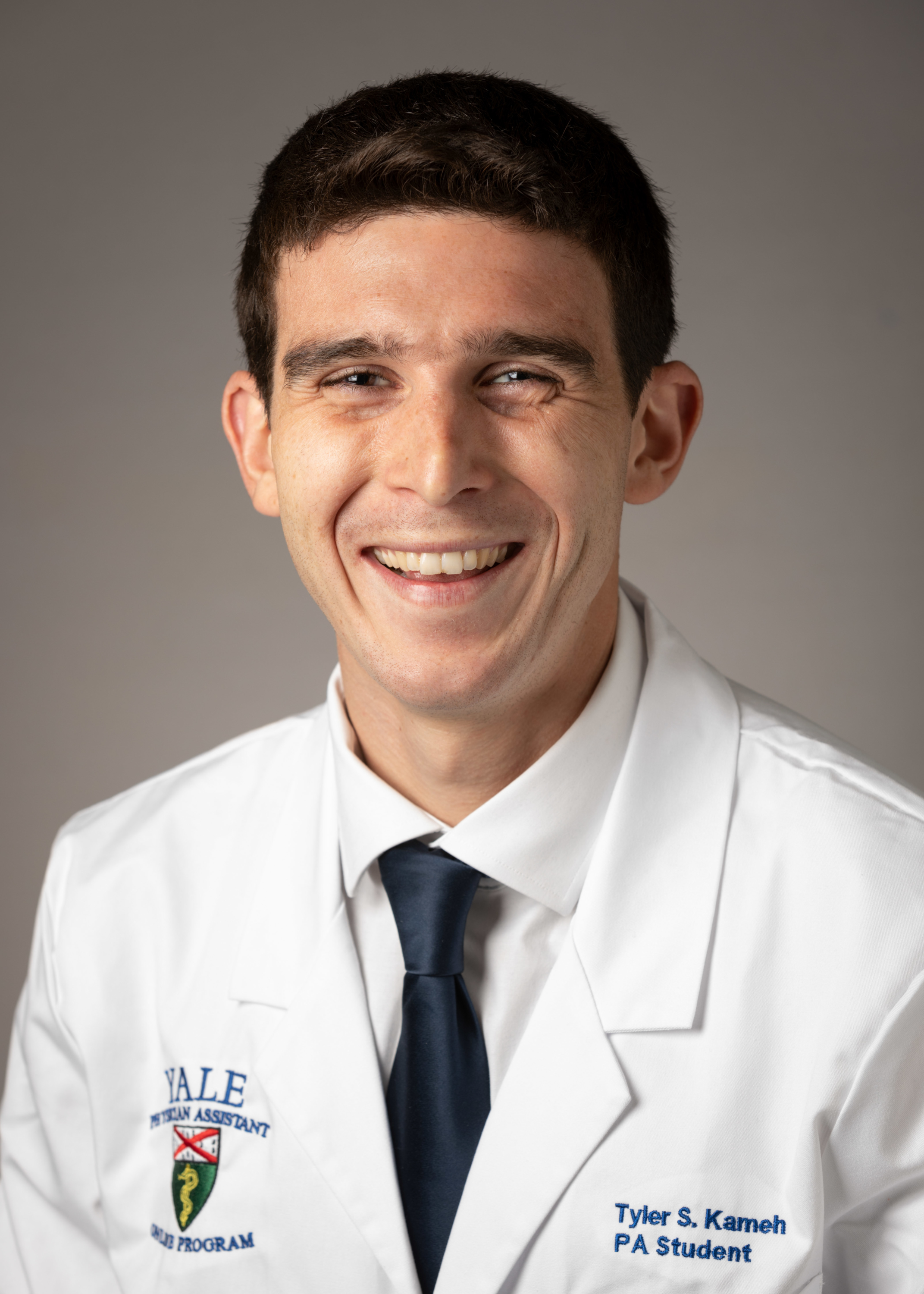Three Yale School of Medicine Physician Assistant Online (PA Online) Program students have been selected for the prestigious Physician Assistant Education Association (PAEA) Student Health Policy Fellowship over the past three years. Each year up to 20 PA students from across the United States are chosen to participate in this program.
The ultimate goal of the fellowship is “to inspire and prepare fellows for lifelong grassroots advocacy, both in Washington and at home, that promotes the PA profession as an integral part of the health care system,” according to PAEA. The program aims to develop participants’ advocacy and leadership skills, with a focus on advancing health policy priorities, PA education, and the PA profession at the local, state, and national levels.
Fellows participate in an intensive three-day workshop to learn about advocacy and policymaking, during which they meet members of the U.S. congress and their staffs. Each fellow also completes an advocacy project under the guidance of a program faculty mentor.
Developing actionable skills
Tyler Kameh, MMSc ’22, participated in the fellowship while he was a Yale PA Online student. He explains how during Problem-Based Learning sessions, the PA Online faculty focused not only on symptoms, diagnoses, and treatment, but systemic issues like access to resources, government programs, and public policy. Kameh, who has an interest in advocacy, especially around improving health care for underserved populations, wanted to learn more about government process, and the PA Online faculty encouraged him to apply for the fellowship. While medical professionals importantly help individual patients through clinical work, Kameh points to how advocacy enables proactive systemic change that can have broader health impacts.
Kameh found the three-day workshop at the beginning of the fellowship—where he had the opportunity to meet with U.S. representatives and senators from Virginia and their staffers—“extremely helpful to develop actionable skills” for advocacy. He also says it was refreshing that the staffers seemed genuinely excited to hear from passionate constituents who were advocating for public health measures such as improving maternal care, decreasing health disparities, and lowering the interest on PA student loans.
For his advocacy project, Kameh organized a forum with the legislative committee chair for the Connecticut Academy of Physician Assistants (ConnAPA) and invited all Yale PA Online students, as well as student from all PA programs in Connecticut. Because the PA Online Program has students from across the US, there were almost two dozen states represented. After the session, Kameh followed up with each attendee, providing information about their state’s PA advocacy association and key issues being discussed at the state level, to provide them with tools for advocacy at the grassroots level.
As he begins his PA career, Kameh says he “absolutely will stay abreast of PA issues” in Maryland—where he will be practicing as a PA in general surgery at Holy Cross Hospital in Silver Spring— and at the federal level.
Learning how to make a difference through advocacy
Erin Hillis, MMSc ’22, applied for the fellowship because she was learning through the Yale PA Online curriculum how important advocacy was and wanted to understand how to get more involved. Moreover, through serving as her class’s ConnAPA representative, Hillis was hearing what current practicing PAs were doing at Capitol Hill, and wanted to be a part of the changes they were working toward.
For her project, Hillis hosted a Zoom call for students in the Yale PA Online Program and from programs across Connecticut with former Connecticut House Minority Leader Thermis Klarides and current State Representative Nicole Klarides-Ditria. They discussed how the legislature makes decisions on health care, how the legislature functioned during the COVID-19 pandemic, and what PAs can do to help enact legislation for which they are advocating.
“I decided to host a Health Policy Q&A because I wanted to enable students to be exposed to health policy from the other side of the discussion,” explains Hillis, adding that she wanted students from other schools in the state to participate, because “we are all working together toward a common goal.”
In May 2022, Hillis and her faculty advisor, Diane Bruessow, MPAS, PA-C, DFAAPA, assistant professor adjunct of medicine, had a poster accepted for an American Academy of Physician Assistants (AAPA) conference. Entitled “Voter Registration and Engagement Within the PA Profession: A CT-based convenience sample,” the poster looked at voter participation of PA students and practicing PAs in Connecticut. The results showed high levels of civic engagement for both groups, which, Hillis says, “may lead to a heightened interest in ensuring political needs of the PA profession.”
For Hillis, the most rewarding part of the fellowship “was learning how all of us can make a difference in advocating for the profession, and being able to apply the skills I had learned when meeting with congressmen and women to discuss different topics and policies regarding PA practice.”
Hillis, who is currently a member of the Commission on Government Relations and Practice Advancement with the AAPA, hopes to continue to advocate for the PA profession throughout her career. This includes precepting students not only to help them learn clinical skills, but why it is important to be an advocate for the PA profession and ultimately, patients.
Inspired by health policy advocates

Hoff wants to develop a project that promotes advocacy, awareness, and training of PAs and future PAs on providing trauma-informed care, explaining, “Trauma affects behavior, and a patient's health care experience can often include unrealized and unintentional re-traumatization.” Therefore, Hoff wants to see PA education focus on a deeper understanding of the many types of traumas and their various triggers.
Having faced adverse childhood experiences, Hoff says, “I know well the need for trauma-trained providers, and I cling to the concept of felt safety. No matter the issue, my concentration will always be on seeking ‘to equip’ those caring for others so they can authentically bring hope to them.”
